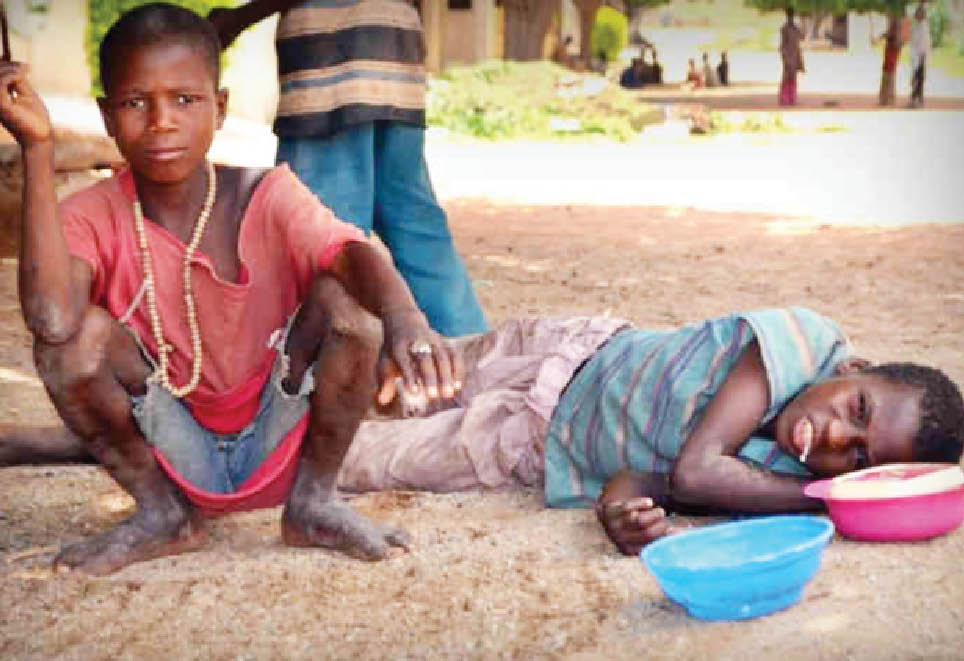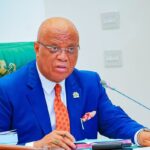I never for a moment believed it when we were told last week that the Federal Government was going to proscribe the Almajiri system of education. National Security Adviser NSA, Babagana Monguno while briefing State House Correspondents after the inaugural meeting of the National Economic Council presided over by Vice President Yemi Osinbajo at the Presidential Villa, Abuja, had told journalists that the system would be scrapped. It did not come to me as a surprise, that the announcement was quickly discountenanced as not reflective of the thinking of the Federal Government. It was clear to me that what the Federal Government desired to proscribe was street begging which has become the pursuit of school age children across Northern Nigeria. Poverty has induced parental neglect which Government is hard put to decisively criminalise being guilty itself of allowing poverty to continue to fester.
One fact we could not discountenance that came from Monguno nonetheless was his assertion that the almajiri system has been a major hindrance to education in the North. There are a reported 10 million street children in Northern Nigeria that are out school and roaming streets in cities under the guise of being Almajiri, supposedly engaged in Koranic education, but are not. The children are exploited, victimised, and taken advantage of until in the end, they migrate into drug addiction, criminal tendencies and fundamentalist indoctrination.
Evidently in the past 4 years of the Muhammadu Buhari rule, not much thought has been given to the clear and present national danger of the over 10 million out of school children in Northern Nigeria because that same Thursday, President Muhammadu Buhari as if oblivious of the emanation from the National Economic Council Summit headed by his Vice President Osinbajo, lambasted parents who left their children of primary and junior secondary school ages out of school, saying it was criminal. He said when a government fails to provide the schools, teachers and teaching materials necessary for basic education, it leads to criminality in the society. The President copiously quoted Section 2 of the Compulsory Free Universal Basic Education Act which provides that every government in Nigeria shall provide free, compulsory and universal basic education for every child of primary and junior secondary school age.
“This is therefore a call to action, I would like to see every governor rise from this meeting and rally his local government chairmen towards ensuring that our schools offer the right opportunities and provide the needed materials and teachers for basic education, at the minimum. If we are able to do this, the benefits will surely manifest themselves”.
Presidential Spokesman Garba Shehu again, quickly doubled down by last Friday on the understanding given to the assertion of the National Security Adviser and underscored by the President. Said Garba Shehu, “we don’t want to create panic or a backlash”, alluding to “due consultations” with relevant agencies first. “The abrogation of the Almajiri system of education remains an objective but there is no immediate ban of it by the Buhari Administration,” Shehu reportedly said, “Free and compulsory primary school education is a requirement of the Nigerian constitution and any individual or group not in compliance with this is violating the law of the land and liable to be punished.”
But the president had warned that any governor who failed to provide schools, teachers and necessary teaching materials for the entrenchment of basic education would be aiding and abetting the crime of keeping children out of school.
The Presidency is well aware that statutory funds allocated to Primary Education under the UBEC law lie idle in the commission and until Treasury Single Account was introduced, the money floated between banks shoring up their liquidity and availability for round tripping in foreign exchange. To date, less than 30% of funds available for primary education is accessed by State Governments, discouraged as they are by the requirement to provide counterpart funding. At the close of 2018, 16 states had not accessed N18.8bn between 2015 and 2016 for their education sectors, while 24 states, including 15 of the first 16 states, reportedly failed to access N29.5bn in 2017. Unaccessed matching grant for 2005 – 2018 remains a whopping N67bn.
It is a mere paying of lip service to the almajiri if in 4 years, the Federal Government could not force State Governors of the Northern States to access the funds, according to the Universal Basic Education Law
The Buhari Administration is jeered at by the opposition People’s Democratic Party to the effect that President Goodluck Jonathan in 2013 integrated the Almajiri system into the main stream educational system of the country; and formally signed it into law, presenting it to the National Economic Council in July 2013. A National Committee on Implementation of Almajiri Education Programme was established to ensure that the pupils are provided with opportunities to access Basic Education. Goodluck Jonathan built a record 157 Tsangaya (Almajiri) Model Schools across Northern Nigeria. Tragically, even with President Muhammadu Buhari in power, there has not been any follow through and indeed nearly all the massive schools lie waste today.
Success stories of individual interventions give clear indication that Nigeria can tackle this menace even with over 10 million children to cater for, if we are sincere in our resolve. Northern State Governors in Nigeria do have a workable template for success at the American University of Nigeria, Yola, Adamawa State. Using a learning environment, a meal, a bar of soap, a daily wash; a plastic chair and a table as entry point, dramatic changes the almajiri narrative as the shame of poverty stricken North. The US Government, through USAID, provided funding to the tune of USD 801,000 as part of its North East Regional Initiative, for the University to launch a mass literacy campaign for 20,000 out-of-school children in the State. Tagged the TELA (Technology Enhanced Learning for All) the one year low cost, highly scalable and replicable initiative for improving literacy and numeracy among vulnerable children, is an achievement the rest of Nigeria can copy. Adding technical; and vocational training could ensure self actualisation and self-employment, especially for the older and matured individuals. If there is sincerity in poverty reduction programs being implemented to reduce the growing menace of the Almajiri in Northern Nigeria, a large proportion of the idle UBEC funds should be adequate, for meaningful impact. While budgetary allocations to so-called nomadic schools continue to be made and released, it is clearly doubtful that the scheme is operational any where in Nigeria. The Federal Government thus, has a ready and available source of funds if there is the will to utilise the resource.

 Join Daily Trust WhatsApp Community For Quick Access To News and Happenings Around You.
Join Daily Trust WhatsApp Community For Quick Access To News and Happenings Around You.


